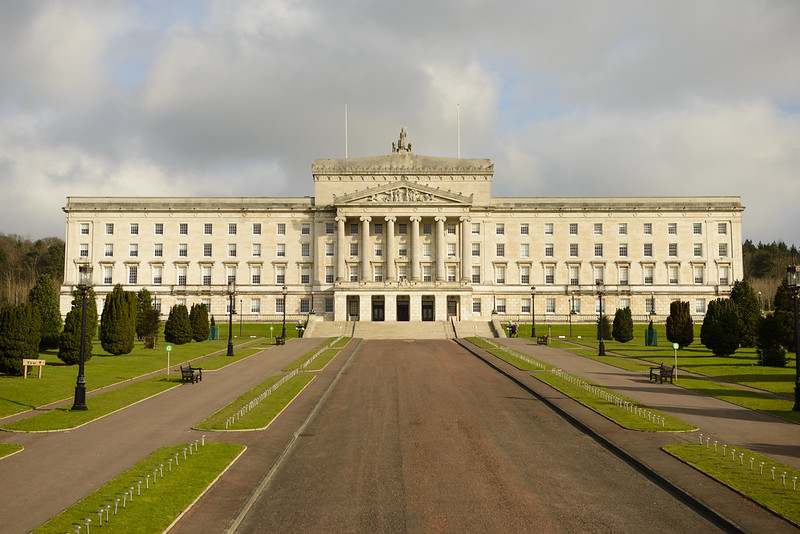The political foundations of Northern Ireland are at risk of crumbling
Not for the first time in recent memory, Northern Irish politics is in flux, the UK government’s Brexit deal is causing ructions and the power-sharing institutions are on the brink of collapse. Guest contributor Alan Whysall assesses the current crisis and argues that the foundations of the Belfast/Good Friday Agreement are at serious risk of crumbling.

Northern Ireland appears headed for further political turbulence, and it is not clear that devolved government will survive. Two steps within 24 hours by the Democratic Unionist Party (DUP), currently the largest party in the Assembly, have triggered this.
On Wednesday night, the DUP Agriculture Minister, Edwin Poots, announced that his staff would no longer carry out checks required at Northern Ireland ports under the Northern Ireland Protocol.
On Thursday afternoon, the DUP First Minister (FM) of Northern Ireland, Paul Givan, announced that he would resign his office on Friday morning over the Protocol, although his resignation letter was short on specifics.
A couple of years ago, the DUP leadership was suggesting that, notwithstanding additional border checks in the Irish Sea, Northern Ireland should make the best of the Protocol, which gives it free access for goods to the single markets of both the EU and the UK. But the party was losing support in polling both to the hardline Traditional Unionist Voice, and to the more moderate Ulster Unionist Party (UUP) – which continues. Arlene Foster was ousted as leader and First Minister last year, and Edwin Poots became leader, lasting three weeks before he himself was removed, to be replaced by Jeffrey Donaldson. The party has become increasingly strident in its demands for the replacement of the Protocol in its present form, and since last summer Donaldson has been threatening to collapse the institutions over the issue.
Nevertheless, tangentially, the timing of the FM’s resignation may not have been planned – indeed it comes at a time when reports are that negotiations with the EU were going well. The complicating subplot is that Poots is himself fighting within the DUP to retain his seat in the Assembly, since Donaldson is seeking to return from Westminster to the constituency also represented by Poots and Givan, which is unlikely to return three DUP members. The FM resignation overshadows the infighting. On such factors may the future of the Belfast/Good Friday Agreement turn.
To continue reading, please click here.
Article originally appeared on the Constitution Unit blog.
The featured image has been used courtesy of a Creative Commons license.
Alan was a member of the Working Group on Unification Referendums on the Island of Ireland, but the views expressed in this post are personal views and do not necessarily reflect those of the Working Group as a whole.




